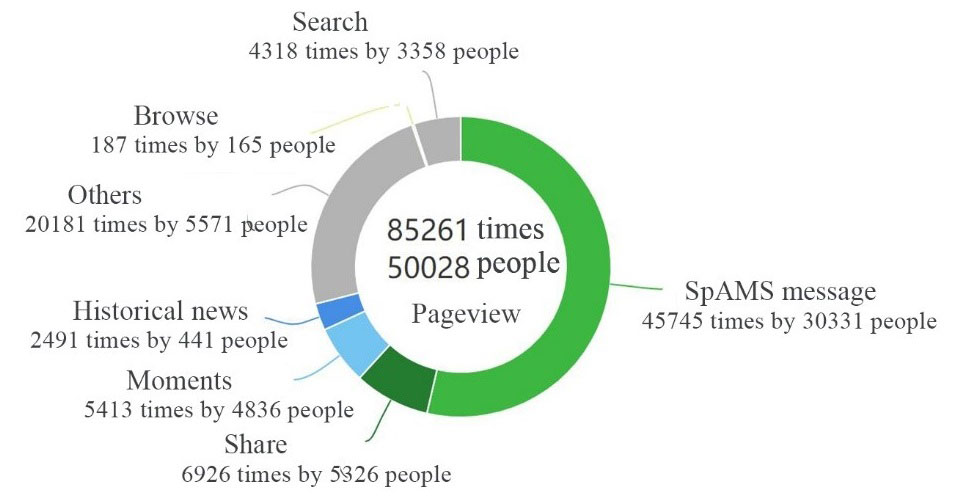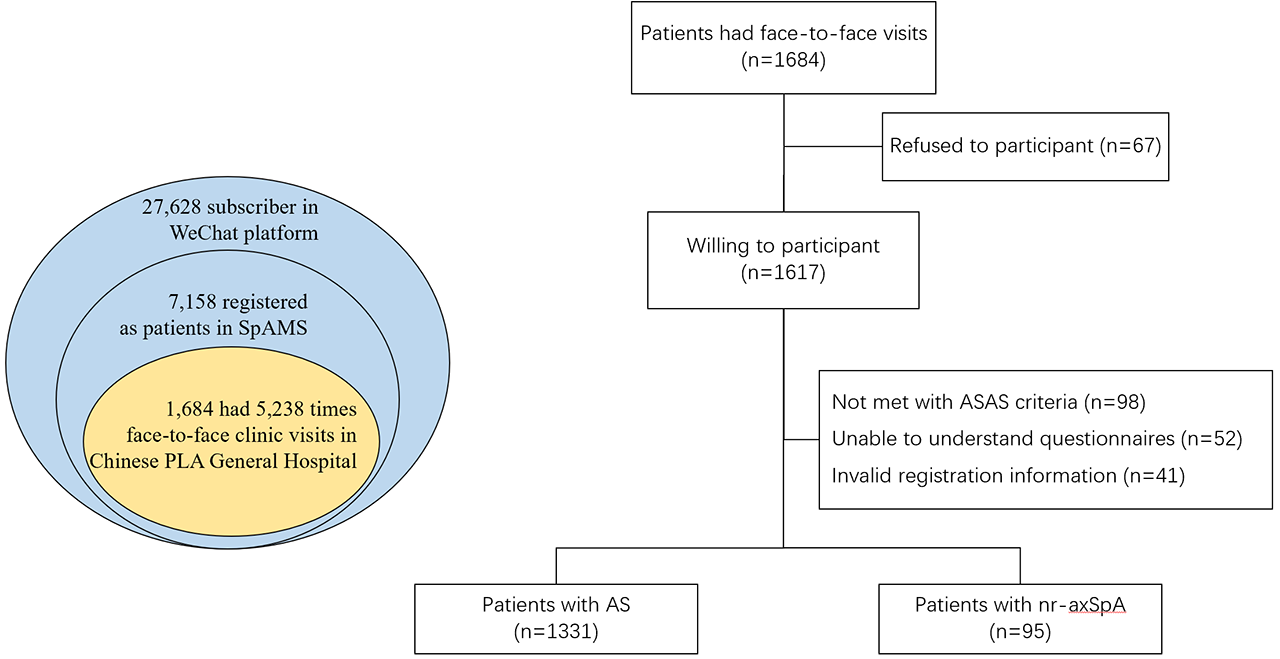Session Information
Session Type: Poster Session (Monday)
Session Time: 9:00AM-11:00AM
Background/Purpose: We developed a multipurpose digital platform, Smart-phone SpondyloArthritis Management System (SpAMS), based on two of the most important objectives: 1) for patients: to activate patient engagement and provide education about disease self-management and 2) for clinicians and researchers: to provide a new source of real-world data for the scientific community by collecting questionnaire data, physical measurements, and images with comprehensive clinical follow-ups.
Methods: SpAMS was designed for patients with axial SpA, including AS and nonradiographic axial SpA (nr-axSpA), and open to the public by being embedded in the WeChat social media application (Figure 1). The project was launched in August 2015, beta-tested in January 2016 with rheumatologist and a small group of patients, and finally released in April 2016. Patients diagnosed with axial SpA in the Chinese People’s Liberation Army (PLA) General Hospital were recruited consecutively in the Chinese Ankylosing Spondylitis Prospective Imaging Cohort (CASPIC). Demographic and clinical data were collected through SpAMS. All data were pseudonymised for analysis and matched by generation time and unique anonymous identifiers.
Results: Between April 2016 and February 2019, 27,628 WeChat social media users all over China subscribed to our WeChat service account and received weekly notifications about SpA disease management strategies. In the last 30 days alone, a total of 50,028 users read those management strategies 85,261 times (Figure 2), and this figure has remained stable over the past 6 months. The most-read articles concern exercise and lifestyle. There were 7,158 subscribers who logged into our system and registered as patients with axial SpA. Of them, 1,684 had face-to-face clinic visits at the Chinese PLA General Hospital (Figure 3). In total, 1,426 patients with axial SpA were enrolled in the cohort (AS = 1331 and nr-axSpA = 95). To date, 4,659 patient-reported assessments (mean 3.9, range 1 to 21) and 3,304 physician-reported assessments (mean 2.8, range 1 to 11) have been collected.
Conclusion: SpAMS is a disease management tool that can help patients with AS perform self-management and provide clinic data to clinicians.
To cite this abstract in AMA style:
Ji X, Zhu J, Zhang J, Huang F. Development of Smart-phone Spondyloarthritis Management System and Real-world Study of Chinese Patients with Ankylosing Spondylitis [abstract]. Arthritis Rheumatol. 2019; 71 (suppl 10). https://acrabstracts.org/abstract/development-of-smart-phone-spondyloarthritis-management-system-and-real-world-study-of-chinese-patients-with-ankylosing-spondylitis/. Accessed .« Back to 2019 ACR/ARP Annual Meeting
ACR Meeting Abstracts - https://acrabstracts.org/abstract/development-of-smart-phone-spondyloarthritis-management-system-and-real-world-study-of-chinese-patients-with-ankylosing-spondylitis/



